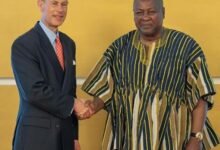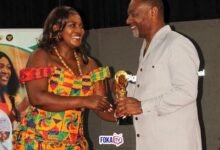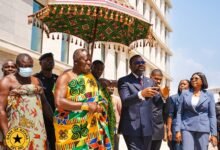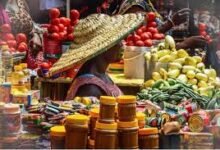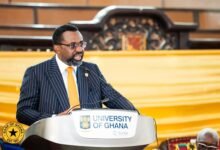
Refrain from ascribing spiritual causes to the learning difficulties of your children and seek the right remedies to address their challenges, the Executive Director of the Africa Dyslexia Organisation (ADO), Rosalin Abigail Kyere-Nartey, has appealed to parents.
She said such children may either be suffering from dyslexia or the dyscalculia which were natural learning disabilities that must be dealt with, using the right teaching techniques and approaches, and had nothing to do with spiritism or spiritualism.
“If your child cannot read, cannot write, cannot do or understand mathematics, it is not a disease, sickness or a spiritual thing. It has everything to do with his or her cognitive abilities and can be handled to get the very best out of such a child,” she emphasised.
Speaking to the Ghanaian Times exclusively on the sidelines of the opening of a three-day dyscalculia and dyslexia strategies training for educators in Accra yesterday, Ms Kyere-Nartey said even though children suffered different forms of learning disabilities, dyslexia and dyscalculia were a few of the common ones.
She explained that dyslexia was a learning disorder which was characterised by difficulty in reading, while dyscalculia was associated with the difficulty in learning or comprehending mathematics as well as manipulating numbers.
Ms Kyere-Nartey noted that the two constituted more than 20 per cent of all learning disabilities, stressing that “it is estimated that for every five children one is likely to have such disability.”
Touching on the training workshop, Dr Marilyn Marbel-Wilson, the Chief Executive Officer (CEO) of Mission Pediatrics, said the main aim of the workshop was to get together a group of educators and train them in the specific strategies that they would require in teaching children with learning disabilities, particularly those with reading and mathematics learning disabilities.
She said having worked with children over the years, Mission Pediatrics could confirm that dyslexia and dyscalculia were a major challenge confronting some children in the country.
Dr Marbel-Wilson noted that the critical challenge was that after diagnosing children with such disability, they go back to the school without any or much help.
“If the teachers in the school do not understand what the challenges are and how they are supposed to help them, then it is only half of the work done and that is why it has become necessary for teachers to be trained.
Dr Marbel-Wilson who is also a neurodevelopmental pediatrician and medical director at Mission Pediatrics said it was important that such children were given the needed attention because they constituted the most creative minds of the population.
The workshop, organised by ADO in collaboration with Mission Pediatrics and supported by the British Council, brought together 60 participants from both the public and private schools including two from neighbouring Nigeria.
Some of the experts who participated in the training of the educators were Dr Anupma Sethi, a Clinical Developmental Learning Specialist and founder of Empowerkidz from the United States of America (USA), Mr Alex Amankwa, officer in-charge of learning disabilities, Special Education Division of the Ghana Education Service and Ms Ida Allotey-Brown, a special educator based in Accra.
BY CLIFF EKUFUL

